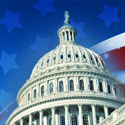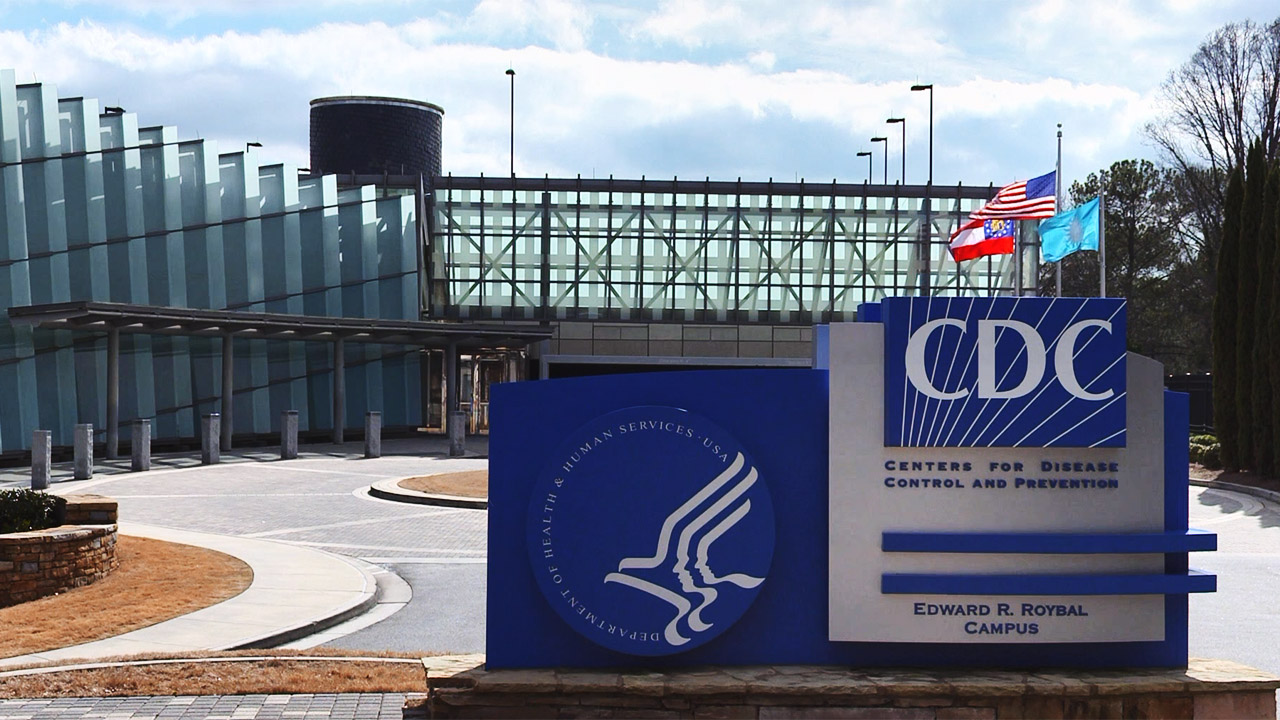Health
AIDS drug funds threatened by Tea Party scare?
White House, Hill leaders reluctant to push emergency measure

Some Democrats and Republicans in Congress who have long supported funding for the AIDS Drug Assistance Program are reluctant to back the struggling program this year because they fear the additional spending will jeopardize their chances of being re-elected, Capitol Hill observers and AIDS activists said this week.
William Arnold, executive director of the National ADAP Working Group, said intense pressure on members of Congress to curtail spending by the so-called Tea Party movement has made it difficult to line up support for an emergency supplemental appropriation measure.
Arnold and officials with other national AIDS and LGBT organizations say the program is facing a crisis never seen before, where a growing number of low income people with HIV or AIDS may be denied life-saving anti-retroviral drugs in at least 11 states this year because state ADAP affiliates have run out of money.
Due to a shortage of funds, the 11 states have been forced to put in place waiting lists for patients who otherwise would have received AIDS medication prescribed by their doctors.
“It’s ridiculous that people have to be wait-listed for medicine that they need to stay alive,” said Laurie Young, a policy analyst for the National Gay & Lesbian Task Force.
ADAP was created in 1987 under the Ryan White Care Act to help pay for AIDS-related drugs for low-income people with HIV/AIDS, including those who don’t have health insurance coverage.
Advocacy groups familiar with the program say an emergency appropriation of at least $126 million is needed this year to provide AIDS drugs for all that need them. But they say the Obama administration and Democratic leaders in Congress have yet to make a commitment to back such an appropriations measure.
Nearly 80 members of the House, including gay Reps. Barney Frank (D-Mass.) and Tammy Baldwin (D-Wisc.), signed a petition recently sent to the White House urging the president to back the emergency funding measure. All but one of the House members signing the petition were Democrats.
Baldwin said Tuesday that she and her colleagues who signed the petition have yet to receive a response from the White House.
In an e-mail Tuesday to the Blade, White House spokesperson Shin Inouye said the president “strongly supports the Ryan White Program and the AIDS Drug Assistance Program’s vital role in providing life-saving medications for people living with HIV and AIDS.”
Inouye noted that the current year’s funding for ADAP represents a $20 million increase over the fiscal year 2009 funding. He said President Obama has proposed an increase in ADAP funding for next year that will allow the program to “serve an additional 3,389 individuals.”
But Inouye didn’t say whether the administration would support the $126 million emergency supplemental appropriation for ADAP for this year, as AIDS groups have requested.
In response to a request for the White House’s position on the emergency funding proposal, Inouye said, “We are working to ensure that ADAP has the funds it needs so that waiting lists are not needed for this safety net program.”
Drew Hammill, a spokesperson for House Speaker Nancy Pelosi, said Pelosi and other House Democratic leaders were reviewing the request.
“As she has every single year since the program was created, the speaker will push for increased funding for ADAP in the regular [fiscal year] 2011 Labor-[Health & Human Services]-Education appropriations bill,” he said.
Representatives of AIDS groups, including Arnold, said a funding increase in the fiscal year 2011 appropriations bill cited by Pelosi’s office would be helpful and could alleviate the ADAP crisis if the funding were large enough.
But they said that immediate relief is needed this year, noting that the 2011 measure would not take effect until July 1, 2011.
Baldwin told the Blade that she was certain that congressional Democrats would take steps to support the $126 million emergency appropriation. But she said Republicans in the House have followed a policy of opposing nearly all spending bills proposed by Democrats.
“I sense among the Democratic caucus, among the Democratic leadership, an absolute awareness of this” funding problem and a commitment to acting, she said. “And yet when we can’t rely on any bipartisanship to respond to this crisis, we can’t rely on a single Republican vote to help respond to the absolute needs of people we represent, it is extremely challenging.”
But Michael Weinstein, president of the AIDS Healthcare Foundation, questioned Baldwin’s response, saying Democrats have yet to introduce a measure calling for the $126 million funding for ADAP.
“Why don’t they introduce a bill and call the Republicans’ bluff if they want to blame this on the Republicans?” Weinstein said.
He noted that Sens. Richard Burr (R-N.C.) and Tom Coburn (R-Okla.) introduced a bill last month that would take the $126 million needed for ADAP this year from the federal stimulus program, where there are millions of dollars in unobligated funds.
Sens. Michael Enzi (R-Wyo.) and George LeMieux (R-Fla.) also signed onto the bill, but no Democrats so far have agreed to become co-sponsors. Weinstein said Democratic sources in the Senate told him the bill would be “dead on arrival” when sent to a committee to consider it.
“This is partisan politics, with the well-being of people with AIDS the ones to suffer the consequences,” Weinstein said.
Weinstein also challenged Pelosi to immediately introduce an emergency funding measure to cover the needed funds for ADAP this year, saying her district in San Francisco has a large number of low-income people with HIV that rely on ADAP.
He acknowledged, though, that no other Republican senator, including Senate Minority Leader Mitch McConnell, have signed on to the Burr-Coburn bill. A similar bill has yet to be introduced in the House.
Baldwin said she would likely vote for such a bill if it were introduced in the House and became the only vehicle to allocate the ADAP funds. However, she noted that she would prefer not to take funds from the stimulus program.
In his e-mail to the Blade, Inouye said the White House opposes taking funds from the stimulus program “because those resources are needed by communities across the country to keep the economic recovery going and to stimulate job growth.”
Arnold said his group supports the Burr-Coburn bill on grounds that it could provide immediate help for ADAP and the funds are already incorporated in the federal budget, preventing the need for “more spending” to appropriate the funds.
He also noted that the Tea Party movement appears to have frightened both Republicans and Democrats from embracing new spending, even if they know it’s needed to help save lives.
Some Capitol Hill insiders have said the reluctance by lawmakers to back spending measures appears to have stopped a supplemental appropriations bill normally approved each year to pay for federal disaster relief efforts. AIDS activists were hoping a supportive committee member would seek to add the ADAP emergency appropriation to this bill.
That bill, which was before the House Appropriations Committee, was expected to come up for a committee vote last month, just before Memorial Day. But Arnold and other sources familiar with the measure said Committee Chair David Obey (D-Wis.) reportedly put the bill on “hold” because he couldn’t line up the votes among his fellow Democrats to pass it.
Moderate and conservative Blue Dog Democrats were among those reluctant to back the bill, said people familiar with the measure.
“The Blue Dog Democrats have been very opposed to spending money, period, because they’re worried about getting re-elected and they’re from swing districts where tea partiers might be challenging them,” Arnold said.
Obey reportedly has said he postponed committee consideration of the bill because too much business was taking place on the House floor and committee members didn’t have time to consider the bill, according a source familiar with the committee. The source said Obey indicated he would soon decide how and when to take up the bill.
Arnold said his and other AIDS groups have argued that turning down the ADAP spending measure would be “penny wise and pound foolish” because it saves the government large sums of money in the long run.
If people with AIDS are denied medication, they could end up in the hospital, and state and federal agencies could be forced into picking up the bill from patients without insurance coverage.
Health
UNAIDS to commemorate Zero Discrimination Day’s 10th anniversary
UN agency urges global action to protect human rights

As the world marks the 10th anniversary of Zero Discrimination Day; UNAIDS is sounding the alarm on the increasing threats to human rights, calling for renewed efforts to protect the rights of all individuals as a fundamental step towards ensuring health for everyone.
Established by UNAIDS a decade ago, Zero Discrimination Day aims to promote equality and fairness regardless of gender, age, sexuality, ethnicity or HIV status. The progress achieved over the past years is now in jeopardy, however, due to rising attacks on the rights of women, LGBTQ people and other marginalized communities.
UNAIDS Executive Director Winnie Byanyima emphasized the critical link between protecting human rights and safeguarding public health.
“The attacks on rights are a threat to freedom and democracy and are harmful to health,” she said in a press release. “Stigma and discrimination obstruct HIV prevention, testing, treatment and care and hold back progress towards ending AIDS by 2030. It is only by protecting everyone’s rights that we can protect everyone’s health.”
Despite challenges, there has been notable progress.
At the onset of the AIDS pandemic more than 40 years ago, two-thirds of countries criminalized consensual same-sex sexual relations. They are now decriminalized in two-thirds of countries. An additional 38 countries around the world have pledged to end HIV-related stigma and discrimination, contributing to positive changes that include 50 million more girls attending school compared to 2015.
To sustain and enhance these advancements; UNAIDS urges global support for women’s rights movements, LGBTQ rights, racial justice, economic justice, climate justice and peace initiatives. By standing with communities advocating for their rights, the U.N. aims to reinforce the collective effort towards a more inclusive and equitable world.
Zero Discrimination Day is observed on March 1.
Events and activities that will take place around the world throughout the month will serve as reminders of the essential lesson and call to action: Protecting everyone’s health is synonymous with protecting everyone’s rights.
“Through upholding rights for all, we will be able to achieve the Sustainable Development Goals and secure a safer, fairer, kinder and happier world — for everyone,” said Byanyima.
Health
New CDC report finds transgender women at higher risk for HIV
More than 1,600 people in seven cities surveyed

The Centers for Disease Control and Prevention issued a new study report this week that revealed that restricted by employment and housing discrimination and lack of access to needed gender-affirming healthcare for transgender women increasing the risk of contracting HIV.
Researchers reviewed data from a 2019-2020 survey, the National HIV Behavioral Surveillance Among Transgender Women, which found that the demographics of HIV/AIDS have been disproportionally high, especially among Black and Latina trans women, who had experienced employment and housing discrimination coupled with lack of access to gender-affirming healthcare.
The Jan. 25 Morbidity and Mortality Weekly Report was based on data studies of more than 1,600 trans women in seven major urban locales. Participants from Atlanta, Los Angeles, New Orleans, New York, Philadelphia, San Francisco and Seattle were chosen by referrals from people and community-based organizations who knew or were part of the local population of trans women.
The study’s researchers noted: “Employment discrimination occurs at the overlapping nexus of poverty, homelessness, incarceration, health insurance, disability, food insecurity and survival sex work. These issues are interconnected.”
The study stated that trans women’s inability to access quality healthcare, including gender-affirming treatment or access to PrEP, and can expose them to potential incarceration as many turn to “survival sex work” and violence, which increases the risk of contracting HIV.
The study’s author’s pointed out: “When economically marginalized transgender women are refused employment, this refusal cyclically contributes to economic hardships. This analysis …demonstrates the importance of transgender women working and living with dignity and without fear of unfair treatment.”
Health
A Whole New Perspective on Well-Being
The Mather’s team recognizes that everyone’s wellness journey is completely unique to their life experiences and influences.

It’s easy to spot the distinctive, elegant silhouette of The Mather, a Life Plan Community for those 62+ opening this spring in Tysons, Virginia. What is not apparent to the naked eye is The Mather’s unique wellness philosophy, which is literally built into the community.
The Mather’s team recognizes that everyone’s wellness journey is completely unique to their life experiences and influences.
Nature is one of the important factors that contribute to well-being. So The Mather is incorporating biophilic design—a design approach to facilitate access to nature or things that replicate natural patterns. This can include interior spaces with sightlines to a garden, choosing natural wood and stone as interior materials, or incorporating fragrant flowers and plants indoors to spark memories and provide tactile opportunities such as gardening.

“Providing biophilic design within interior settings connects residents to the natural world,” says Mary Leary, CEO and President of Mather, the organization behind The Mather. “Research shows that a connection to nature provides positive benefits to mental states and overall well-being. At The Mather, biophilic design is the intersection of buildings and programs with nature in an urban setting.”
“The Mather is attracting a diverse group of older adults,” says Mary. “As a result, we aim to incorporate wellness practices from around the world, including Wyda movement theory of the Celtic Druids, which helps people achieve harmony with nature and contentment through mindfulness.” This holistic regenerative approach is similar to Qi Gong and yoga, while born in a different part of the world. Mather Institute has a special focus on mindfulness to support older adults’ practice of present moment awareness, which can lead to increased overall well-being, compassion, and joy.
A very different example of a wellness offering at The Mather is the Gharieni Welnamis spa wave bed, which uses computer-controlled vibrational therapy and audio frequencies to train the brain to relax. “The bed increases mindfulness, concentration, and creativity—all of which support our mission of creating Ways to Age Well,SM” says Mary.
These and other personalized ways to wellness will ensure that residents of The Mather can choose from seemingly countless ways to focus on their well-being. In other words, the sky’s the limit!


















